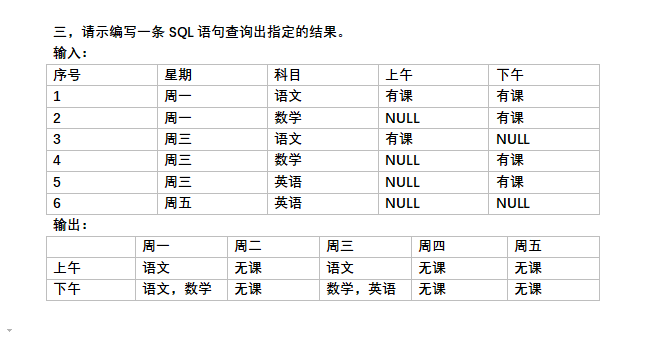This question already has an answer here:
-
How to test multiple variables against a value?
19 answers
-
Elif and if not working or me not understanding [duplicate]
3 answers
I want to check if a variable has one of multiple values. I\'m confused about why or doesn\'t work in this situation. I was following a tutorial that gave the example if (a or b):, but when I try to do this it only checks the variable against the first value. What is wrong with my check?
name = raw_input(\'Please type in your name:\')
if len(name) < 5:
print \"Your name has fewer than 5 characters\"
elif len(name) == 5:
print \"Your name has exactly 5 characters\"
if name == (\"Jesse\" or \"jesse\"):
print \"Hey Jesse!\"
else:
print \"Your name has greater than 5 characters\"
(\"Jesse\" or \"jesse\")
The above expression tests whether or not \"Jesse\" evaluates to True. If it does, then the expression will return it; otherwise, it will return \"jesse\". The expression is equivalent to writing:
\"Jesse\" if \"Jesse\" else \"jesse\"
Because \"Jesse\" is a non-empty string though, it will always evaluate to True and thus be returned:
>>> bool(\"Jesse\") # Non-empty strings evaluate to True in Python
True
>>> bool(\"\") # Empty strings evaluate to False
False
>>>
>>> (\"Jesse\" or \"jesse\")
\'Jesse\'
>>> (\"\" or \"jesse\")
\'jesse\'
>>>
This means that the expression:
name == (\"Jesse\" or \"jesse\")
is basically equivalent to writing this:
name == \"Jesse\"
In order to fix your problem, you can use the in operator:
# Test whether the value of name can be found in the tuple (\"Jesse\", \"jesse\")
if name in (\"Jesse\", \"jesse\"):
Or, you can lowercase the value of name with str.lower and then compare it to \"jesse\" directly:
# This will also handle inputs such as \"JeSSe\", \"jESSE\", \"JESSE\", etc.
if name.lower() == \"jesse\":
if name in (\"Jesse\", \"jesse\"):
would be the correct way to do it.
Although, if you want to use or, the statement would be
if name == \'Jesse\' or name == \'jesse\':
>>> (\"Jesse\" or \"jesse\")
\'Jesse\'
evaluates to \'Jesse\', so you\'re essentially not testing for \'jesse\' when you do if name == (\"Jesse\" or \"jesse\"), since it only tests for equality to \'Jesse\' and does not test for \'jesse\', as you observed.
The or operator returns the first operand if it is true, otherwise the second operand. So in your case your test is equivalent to if name == \"Jesse\".
The correct application of or would be:
if (name == \"Jesse\") or (name == \"jesse\"):
If you want case-insensitive comparison, use lower or upper:
if name.lower() == \"jesse\":


